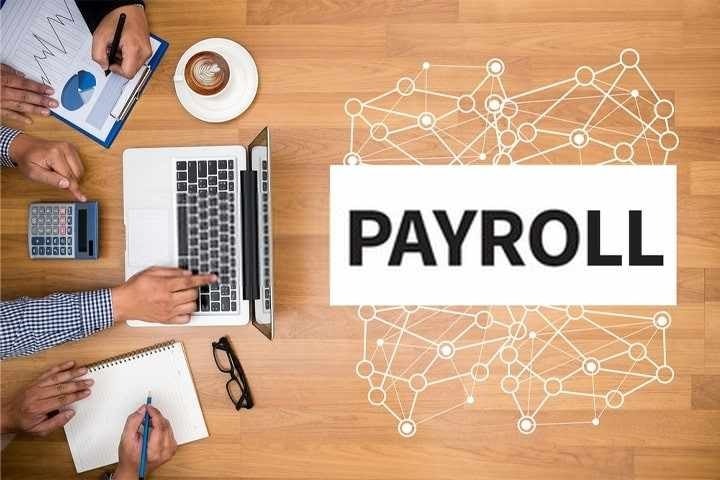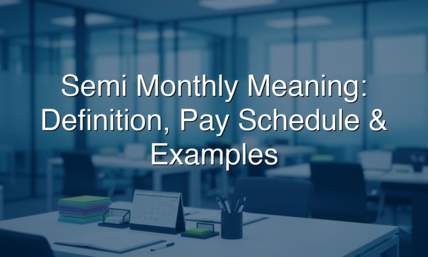Understanding Paycheck Stub Abbreviations and Codes
A pay stub summarizes your earnings in a particular pay period and how they have been distributed. It includes your gross pay, tax deductions, benefit deductions, and your net income.
However, when you receive a pay stub, you notice that not every piece of information is written in plain language. You'll encounter information presented as payroll codes and paycheck stub abbreviations.
Since the pay stub is a record of your earnings, you need to understand the language associated with it. While some common payroll abbreviation codes are standard and easy to decipher, some aren't. A check stub generator, however, makes it easy to create a pay stub while explaining the codes for you.
However, it's essential to understand these payroll codes. This article explains why and what these paycheck stub abbreviations mean.
Why Paycheck Stub Abbreviations Matter
As you might imagine, these payroll codes on your pay stub stand for something. But why do you really need to understand them? Here are a few reasons:
1. To Check for Errors and Irregularities
Sometimes, the information on your pay stub may not be easy to understand. However, unless you know how to decipher the payroll codes, you may find it difficult to notice or report any irregularities. However, it becomes easy to detect and forward the issue to your employer for corrections once you understand the information.
You might notice errors in the amount of taxes paid and the unpaid overtime pay. You may also find inaccurate deductions for employee benefits, health, or life insurance. If you can't read your payroll deduction abbreviations, these mistakes may easily go unnoticed.
2. To Understand Tax Deductions
If you know your withholdings, you're less likely to be surprised that you owe more taxes or have overpaid and need a refund. This may be a way of saving yourself from potential tax troubles. You can adjust your W-4 to reflect the corrected amounts if your employer isn't withholding enough or if too much is being taken out. That's why understanding payroll codes for federal income tax, state income tax, and local taxes is necessary.
3. When Using as Proof of Income
When you need a credit card, a car loan, or to rent an apartment, and in many other money-related situations, you need to prove your earnings. Pay stubs are the best way to present proof of income. You need to show that you have the money to take on the financial obligation. Knowing the acronyms and paycheck stub abbreviations helps you confirm that your earnings are accurate and correct. If something is unclear or inaccurate, it may jeopardize or cause a delay in getting approval for a particular service.
4. To Generate Pay Stubs
If you don't understand pay stub information, it won't be easy to generate one accurately. Generating a pay stub requires you to have all the necessary information. This includes the employer identification number (EIN), employee name and SSN, and the relevant tax and benefit deductions. Some of this information is usually indicated in payroll codes, abbreviations, or acronyms.
The best way to create your document is by using the 123 Paystub process. It provides a way to generate your professional pay stubs in just three steps.
Understanding Pay Stub Abbreviations and Payroll Codes
The pay stub is divided into sections where your earnings are coming from and where they're going. The earnings part includes your regular pay and overtime pay, vacation pay, sick pay, and any other additional pay credited to you.
The other section represents what has been deducted as taxes, employee benefits, retirement plans, investments, savings, and other expenses. These deductions fall into two main categories: pre-tax deductions and post-tax deductions.
Today, many employers are moving to digital payroll systems rather than issuing paper stubs. It is where most business payroll processing is online. However, since employees need their pay stubs for various reasons, employers often use a pay stub template. Sometimes, they even customize and create pay stub deduction codes and abbreviations. Although not all codes are customizable.
Let's look at how you read your pay stub by section:
Header Abbreviations and Codes
Your pay stub header mainly contains your/employee's basic information. But you may also see some of these uncommon payroll abbreviation codes:
-
Check No.: This code refers to the check number, and employers use it to identify each payout amount for easy tracking.
-
SSN: This is your Social Security Number. The Social Security Administration issues it.
-
EIN: This stands for Employer Identification Number. It's a code given by the IRS for tax remittance purposes.
-
PAY PERIOD: The specific pay period for the earnings listed.
-
PAY DATE: The date the paycheck is issued.
Earning Abbreviations
The earnings section carries more information, and you'll see abbreviated information throughout. Below is what you'll commonly find here:
-
Gross: This is your gross pay, the total amount before any deductions. It includes gross pay, like all earnings, including vacation pay, overtime pay, and additional pay.
-
Reg Pay: This stands for "Regular pay." It's your base salary or wage.
-
OT: This means "Overtime pay" for hours worked above your regular time.
-
HOL: This stands for "Holiday pay," for time off during holidays.
-
Vac: Vacation pay is what you receive when you take a paid vacation.
-
PTO: It means "Paid time off" for sick pay, vacations, or personal leave.
-
YTD: This means "Year-to-date," the cumulative amount you've earned in the calendar year.
-
Net: The amount you get when all deductions have been made; your take-home pay.
Federal Income Tax Withholding and Other Tax Acronyms
There are plenty of tax abbreviations on your pay stub. These include the amount the employer withholds for federal, state, and local taxes. Understanding these payroll codes is crucial for employees.
-
FICA: This is the Federal Insurance Contributions Act. This federal insurance contributions tax often funds Social Security and Medicare programs. You might see it split as FICA–SS (Social Security tax) and FICA–Med (Medicare taxes). It is usually seen as FICA on a pay stub.
-
FIT/FITW: These are acronyms for Federal Income Tax Withholding. This is the federal income tax you pay to the IRS.
-
SIT/SWT: These mean State Withholding Tax or State Income Tax. Not all states have this.
-
Local Tax: This is the income tax you pay to your local government. Local tax laws vary widely.
Pre-Tax Deductions: Benefits and Contributions
Pay stubs also contain abbreviations for pre-tax deductions. These are deductions made before your earnings are taxed, reducing your taxable income. They often include employee benefits.
-
FSA: This is a "Flexible spending account," a savings account for healthcare expenses or dependent care expenses. It is a type of spending account.
-
HSA: This is a "Health Savings Account," another spending account for medical expenses.
-
401(k) or Retirement Plan: This is a retirement plan. Employee contributions to this retirement plan are typically made with pre-tax dollars.
-
INS: This indicates health, dental, or life insurance deductions. They are health or life insurance premiums.
Post Tax Deductions and Voluntary Contributions or Deductions
These are automatic deductions from your pay after subtracting income tax. These post-tax deductions do not reduce your taxable income.
-
GARN: This indicates a wage garnishment, often for child support or other deductions and debts.
-
STD: Represents short-term disability withholdings.
-
UNION: Deductions for union dues.
-
CHARITY: Voluntary deductions for charitable contributions.
How Payroll Codes Affect Employees and Payroll Processing

Understanding paycheck stub abbreviations also helps you see how payroll processing and payroll codes affect employees directly. Payroll providers and employers rely on these payroll codes to ensure accuracy and compliance in calculating earnings, deductions, and taxes. This is in accordance with all federal, state, and local tax laws.
For employees, understanding these codes helps them understand their finances. You can verify your pay and understand your tax obligations. You can also make informed decisions about employee benefits, such as retirement plans and health or life insurance options. When you understand your pay stubs, you can plan your finances better. This ensures you're being paid correctly for all hours worked.
Bottom Line
Pay stub codes, common abbreviations, and acronyms are shortened versions of your earnings. Even though there are many terminologies, understanding these paycheck stub abbreviations gives you a clear idea of how your earnings are calculated. It also helps you avoid confusion, understand tax filing better, and catch errors.
If you need an easy way to get your pay stub, you can also use a Check Stub Creator to generate your pay stubs more accurately online. Our tool makes it easy for you. Get started with us today.















